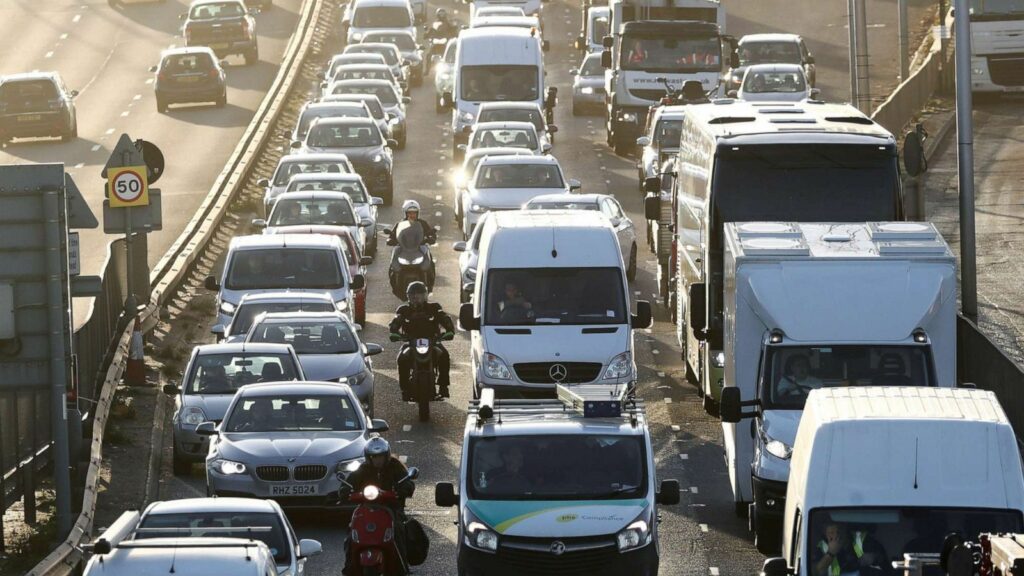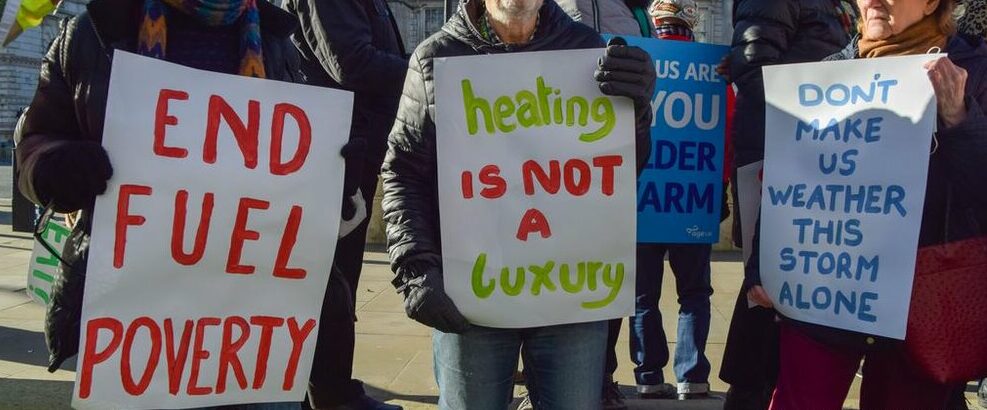Speaking of doing things, Boris Johnson is doing something on climate: the reverse march on Net Zero. The Telegraph reports that “A key part of the Government’s net zero strategy that would have forced up petrol and heating bills has been scaled back amid concerns of a cost of living crunch. The Telegraph has learned that proposals to expand the UK Emissions Trading Scheme in a bid to reduce carbon emissions have been significantly watered down after a backlash from senior government ministers.” Has Boris finally discovered that making fuel expensive is bad? Not so fast. The Telegraph adds, “The scaling back of the plans reflects pressure from Tory MPs over how Boris Johnson will deliver his pledge to make the UK a ‘net zero’ carbon emitter by the year 2050.” How. Not whether. See “Opinion polling suggests broad support for tackling climate change but backing drops when voters are confronted with personal costs that could be associated with making the economy greener.” Which means citizens are complicit in the fraud, one of the risks of democracy worth taking but also worth pointing out.
As it is also worth pointing out, and we have, that the fact that the British government did more acting relative to talking than our own has brought home the “personal costs that could be associated with making the economy greener”. Although the phrase “personal costs” is much more concrete and meaningful than “making the economy greener” since the net impact of getting rid of efficient sources of fuel is not to benefit the environment.
In fact there’s a famous inverted-U “environmental Kuznets curve” in which environmental degradation increases with prosperity at fairly low levels of modern industrial development as people prioritize survival over air and water quality. Wikipedia notes by way of illustration that “between 1970 and 2006, the United States' inflation-adjusted GDP grew by 195%, the number of cars and trucks in the country more than doubled, and the total number of miles driven increased by 178%. However, during that same period certain regulatory changes and technological innovations led to decreases in annual emissions of carbon monoxide from 197 million tons to 89 million, nitrogen oxides emissions from 27 million tons to 19 million, sulfur dioxide emissions from 31 million tons to 15 million, particulate emissions by 80%, and lead emissions by more than 98%.” And one has only to look at London’s deadly “pea soup” fogs from the latter 19th century into the mid-twentieth, or the infamous eye-watering smog of Los Angeles into the 1950s, compared to the air quality today, to see it in operation.
The matter is not quite as simple as it seems, since even in the very early stages of development the quality of drinking water tends to improve dramatically, at least provided your government is not as corrupt as it is incompetent. In London the discovery of the link between the “Broad Street pump” and cholera, and the creation of a vast sewer system in the 1860s brought improvements in public health that not even the smog could undo. And of course Wikipedia complains that carbon emissions continue to rise as prosperity advances, as well as pressure on biodiversity, though we would suggest the latter has more to do with the number of people living well than it does with the average standard of living.
We would also repeat that the true environmental cost of “green” energy is frequently horrendous once you go look at the strip mines, figure out where to dump the clapped-out turbines and so on. But at bottom the insight is obvious: Desperately poor people cannot afford to worry about long-term issues, and while moderately prosperous or wealthy ones can, they still include in the list their ability to afford heating next winter. Which means crippling the economy and forcing people back into poverty doesn’t just drive people to burn dirtier fuel, though in Europe there has been a panicky rush back to coal to replace inadequate amounts of natural gas and nuclear. It means pushing people back into lives that scrape more out of nature and care for it less than would happen if they retained their margin of prosperity.
The politicians live in a bubble into which such considerations struggle to intrude. And when they do, the response often features the same air of unreality. As the Telegraph further notes, “The document outlining the approach [the stronger British Emissions Trading Scheme] was due to be published in the summer, before the Cop26 UN climate change summit in November. Now it is expected in the spring of 2022. Early drafts said that the emissions trading scheme would be ‘radically’ expanded, but that word is understood to have been dropped from the latest version of the document.” It might cause talk.
Or it might reflect a preference for talk over action that penetrates the inner workings of the mind over time. It doesn’t matter whether you say “radically”, it matters whether you act radically. And in fact “Plans that the scheme would apply to vehicles and heating leaked in July to The Times, with suggestions that average car and energy bills could each increase by £100 a year or more. But both elements have now been removed from the consultation, The Telegraph understands, despite the sectors contributing a major proportion of overall UK emissions.”
It looks as though the shiny new green economy is a tarnished dud. So Boris Johnson will continue to promise it without delivering. “One government source stressed that the whole policy area continued to be under discussion, with the final approach not set to be signed off and announced until next spring.” Meanwhile Net Zero Watch is taking bets on how much the British government will have had to rush to power firms through the “Balancing Mechanism” through the whole of 2021.
Not, we will bet, the amount voters were promised. And not an amount they’ll like either.



Your mention of the "reverse march" made me immediately envision Boris doing a climate change moonwalk! If there is anyone with good cgi skills I'd love to see it created!
As a UK citizen My fuel cost has risen by up to 30% a litre in 2 months. It now costs £1.45 a litre or £7.25 a gallon(UK)
My last fill up was at £1.65 a litre...
Disgusting profiteering by the oil companies and of course the Govt love it as it helps to fill the tax black hole they've created with the nonsense maddening rush to untaxed electrification